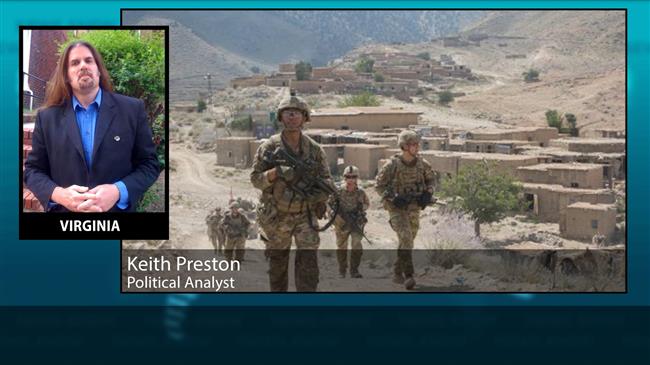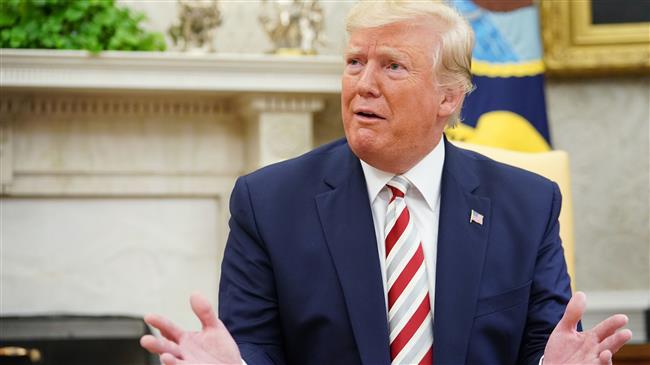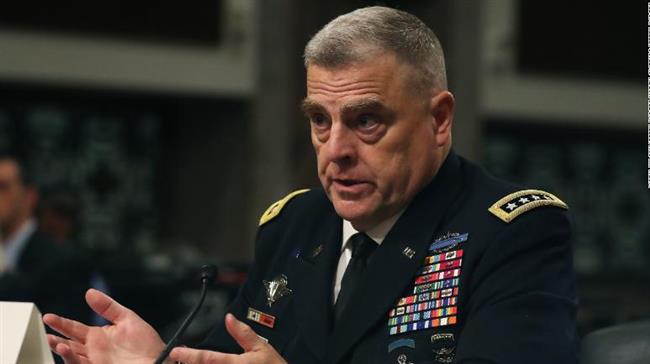Afghanistan is once again the focus of the ‘Great Game’: Scholar
“Afghanistan is once again the focus of the ‘Great Game,’ now in its 21st-century iteration,” according to Dennis Etler, an American political analyst who has a decades-long interest in international affairs.
“Afghanistan is once again the focus of the ‘Great Game,’ now in its 21st-century iteration. The original ‘Great Game’ was a political and diplomatic confrontation that existed for most of the 19th century between the British Empire and the Russian Empire over Afghanistan and neighboring territories in Central and South Asia,” Etler, a former professor of Anthropology at Cabrillo College in Aptos, California, told Press TV on Monday.
“In the 20th century, the contention was transformed into a deadly rivalry between the Soviet Union and the US. Afghanistan, which had been a neutral and relatively stable nation throughout most of the 1900s, became embroiled in the Cold War when a pro-Soviet coup took place in 1978 with the establishment of the Democratic Republic of Afghanistan (DRA),” he added.
“The policies of the DRA alienated traditionalists and opened the door for US intervention in Afghanistan. The US opportunistically backed the formation of the mujahideen in its war against the new government and their Soviet advisers. What resulted was a devastating decade's long civil war that set the stage for the disintegration of the Soviet Union and the end of the Cold War, the victory of the Taliban and the creation of Al-Qaeda and other later terrorist spin-offs, including Daesh,” he stated.
On Sunday, US Defense Secretary Mark Esper traveled to Afghanistan to determine Washington’s "next steps" amid stalled peace talks with the Taliban militant group and escalating violence in the country.
"I'm looking ... to get a really good feel for what's happening on the ground in Afghanistan, and to talk what the way ahead may look like as well," Esper told reporters traveling with him.
"We think a political agreement is always the best way forward with regard to next steps in Afghanistan," he added.
Professor Etler said, “The US directly intervened in Afghanistan after the 9/11 attacks which were alleged to have been launched from Afghanistan by Al-Qaeda, triggering the longest war in US history, which continues to this day. The US has attempted to pacify the country and install US-backed governments, all to no avail. The Taliban resistance is estimated to now control over 60% of the country.”
“Domestic US disillusionment with a series of ‘endless wars’ in the Middle East and South Asia, has led to calls for US withdrawal from Afghanistan. It seems that all US politicians now call for some sort of disengagement from Afghanistan and other countries where the US has deployed troops in its ‘war against terrorism.’ That war has now taken a back-seat to a New Cold War directed against Russia and China. It is against that backdrop that the ‘Great Game’ has been revived in the 21st century. Now the contenders are the US and its allies on one side and Russia and China on the other, with a number of regional players on the sidelines,” he said.
“Most recently a trilateral coalition of Russia, India and China (RIC) has entered the fray and begun negotiating with the Taliban to end the conflict in Afghanistan. The Taliban’s recent victories against the US-supported Afghan army and the threat of gains by Russia and China in the region have prompted the US to negotiate with the Taliban and finally reach a peace agreement that would accommodate many of their demands, including the withdrawal of all US forces,” he said.
“The ‘Great Game’ has therefore entered into a new phase of intense diplomatic jostling between the declining West and a rising East. Add to this the intensifying rivalry between India and Pakistan over neighboring Kashmir, and long-standing alliances between China and Pakistan, and Russia and India, it can be seen that the situation in South Asia is wrought with both dangers and opportunities,” he noted.
“The US, as the inheritor of the British imperialist project, is still intent on maintaining its hegemony in all regions of the world. But as global power relations shift it has to come up with new tactics and strategies to do so. This has led to a period of instability and chaos in US foreign policy as it tries to come to grips with a new reality, its overall decline and China’s continued rise as a global power,” he said.
“The world can see that for all its rhetoric of ‘freedom and democracy’ the US leaves only murder and destruction in its wake, while China brings peace and development. The US, however, given the nature of its imperialist system, cannot extricate itself from the quagmires it finds itself enmeshed in,” the analyst said.
“It is imperative that the nations of the world finally come to the realization that they must settle their disputes amicably, between themselves, without the interference of the US and its Western allies. Only when the US and NATO are marginalized will the world have the opportunity to forge a better future for all humankind,” he concluded.
Hamas: Israel escalating ceasefire violations in Gaza
Venezuela's government declares unwavering unity behind Maduro
VIDEO | Global outcry over Venezuela president abduction
Iran keeps wheat import subsidies despite cutting other food supports
Venezuelan military stands with acting president after US kidnapping of Maduro
VIDEO | Press TV's news headlines
VIDEO | Protesters in Toronto slam US kidnapping of Venezuelan president
Israeli troops detain, intimidate Palestinian toddler in West Bank
















 This makes it easy to access the Press TV website
This makes it easy to access the Press TV website